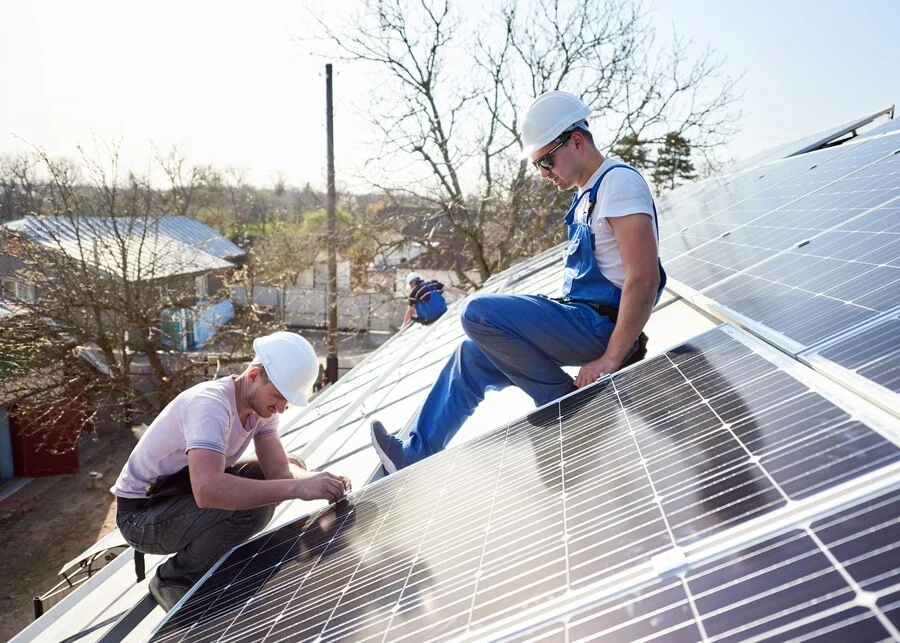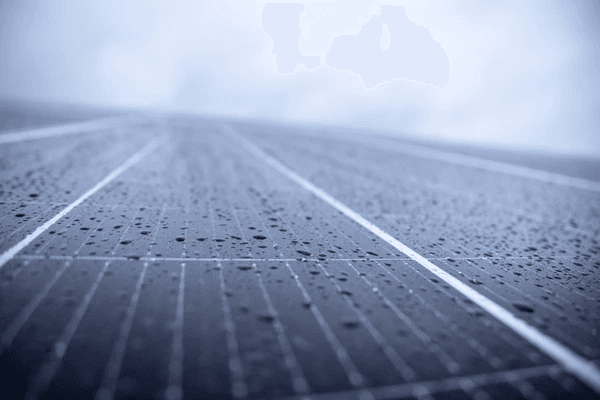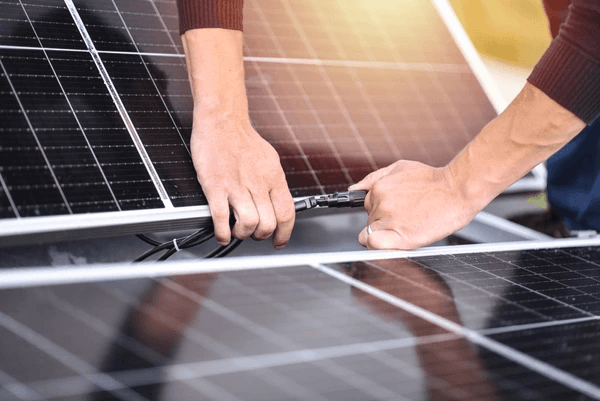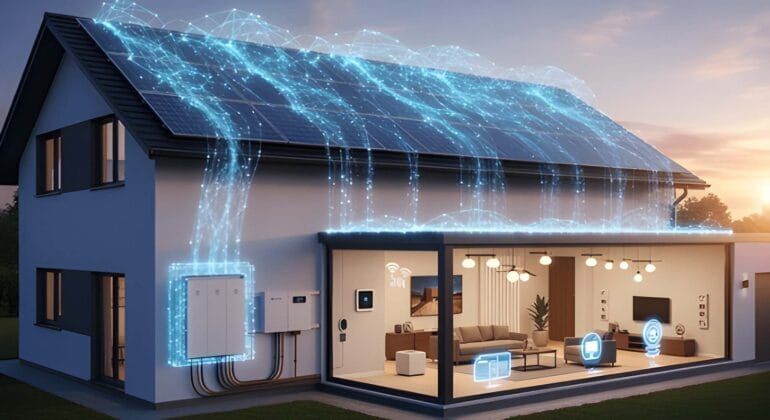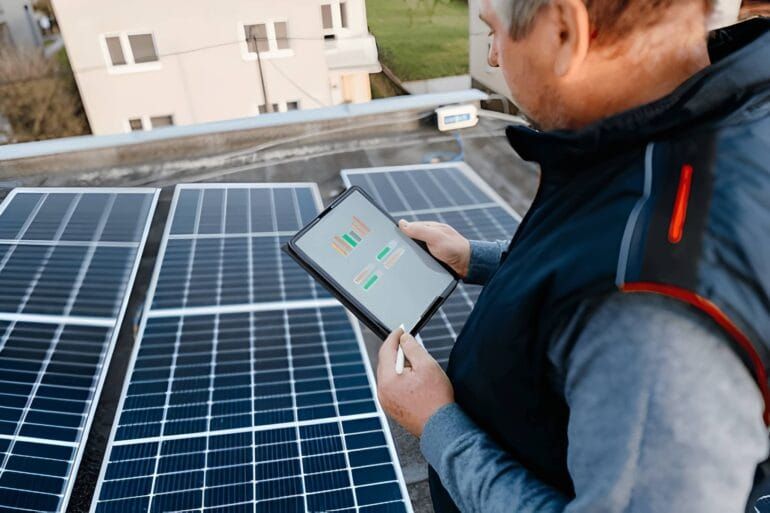The buzz around solar panels is louder than ever. More homeowners are turning to solar energy, not just as an alternative, but as a primary source of power. This article aims to shed light on Why Should I Install Maximum Solar Panels for My Home? We’ll explore the benefits, financial implications, and the positive impact on the environment.
Understanding Solar Panels
What Are Solar Panels?
Solar panels are devices that convert sunlight into electricity. They are made up of photovoltaic (PV) cells, which capture sunlight and transform it into electrical energy. This process is not only fascinating but also revolutionary for our energy needs.
How Do Solar Panels Work?
The science behind solar panels is both simple and complex. When sunlight hits the photovoltaic (PV) cells, it creates an electric field. This field generates a current, which is then captured and converted into usable electricity for your home. Essentially, solar panels are your personal, clean energy power plants.
Here’s a quick breakdown:
- Absorption of Sunlight: Sunlight hits the PV cells in the panels, energizing electrons in the silicon material.
- Creation of Electric Field: The energized electrons create an electric field between two layers of silicon, one positively charged and the other negatively charged.
- Generation of Direct Current (DC): This movement of electrons generates direct current (DC) electricity.
- Conversion to Alternating Current (AC): An inverter converts the DC into alternating current (AC), which is what your home uses.
- Powering Your Home: The AC electricity is then used to power your lights, appliances, and other devices.
Benefits of Installing Solar Panels
Environmental Benefits
One of the biggest draws of solar energy is its environmental impact. By harnessing the power of the sun, you reduce your reliance on fossil fuels, which are harmful to the planet. Solar energy is clean, renewable, and sustainable. Moreover, solar panels help reduce greenhouse gas emissions, contributing to a decrease in air pollution and mitigating climate change. Each kilowatt-hour of solar power generated offsets carbon dioxide emissions that would have been produced by burning fossil fuels.
Financial Benefits
Installing solar panels can save you a significant amount of money on your electricity bills. Over time, these savings can add up to thousands of dollars. Additionally, many governments offer incentives and rebates to encourage solar panel installation, further reducing your initial investment. Solar panels can also increase your home’s value. Studies have shown that homes with solar installations sell faster and at higher prices compared to those without. This financial boost is a compelling reason to consider solar energy.
Energy Independence
With solar panels, you’re not just saving money—you’re gaining independence. By generating your own electricity, you become less dependent on the grid and more resilient against power outages and rising energy costs. This energy autonomy means you are less affected by utility rate hikes and can maintain a more stable energy budget. In areas prone to blackouts or where energy infrastructure is less reliable, having solar panels can provide peace of mind and continuous power.
Why Should I Install Maximum Solar Panels for My Home?
Optimizing Energy Production
More panels mean more energy. Installing the maximum number of solar panels ensures you harness as much sunlight as possible, maximizing your energy production and efficiency. This is particularly beneficial during peak sunlight hours and ensures that you have a steady supply of electricity, even on cloudy days. By optimizing energy production, you can significantly reduce or even eliminate your reliance on the grid, leading to substantial savings on your electricity bills.
Future-Proofing Your Energy Needs
As your household grows, so does your energy consumption. By installing the maximum number of solar panels, you ensure that your home is prepared for increased energy demands in the future. This is especially important if you plan to add new electrical appliances, electric vehicles, or expand your living space. Future-proofing your energy needs means you won’t have to worry about energy shortages or the additional costs of installing more panels later on.
Increasing Property Value
Homes with solar panels are often valued higher in the real estate market. Prospective buyers are drawn to the energy savings and sustainability benefits, making your home more attractive and potentially increasing its resale value. Solar panels are seen as a long-term investment, offering new homeowners lower utility bills and a reduced carbon footprint. By maximizing the number of solar panels, you enhance your home’s appeal, making it stand out in a competitive market and potentially yielding a higher return on investment.
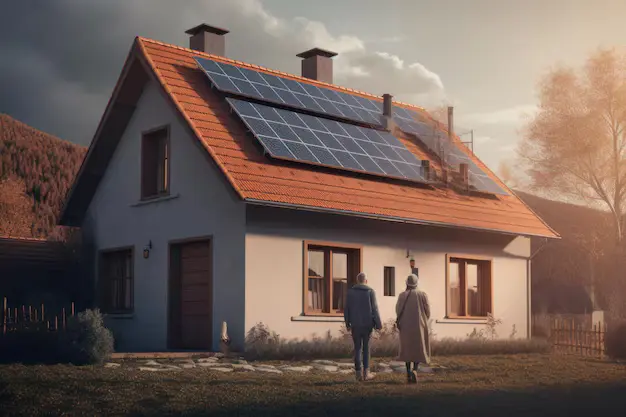
Environmental Impact
Reducing Carbon Footprint
Solar panels significantly reduce your carbon footprint. By generating clean energy, you cut down on greenhouse gas emissions, playing a crucial role in combating climate change. Unlike fossil fuels, solar energy produces no harmful emissions during operation. This reduction in pollution helps improve air quality and contributes to a healthier environment for everyone.
Supporting Renewable Energy Initiatives
Investing in solar panels supports the broader transition to renewable energy sources. It’s a step towards a sustainable future, reducing our collective reliance on non-renewable resources like coal and oil. By adopting solar energy, you are part of a global movement towards cleaner, more sustainable power, encouraging further advancements and investments in renewable technologies. This collective effort helps to stabilize energy markets and promotes energy security worldwide.
Energy Independence
Reducing Dependence on the Grid
Solar panels provide a buffer against the vulnerabilities of the traditional power grid. By generating your own electricity, you become less affected by grid failures and fluctuations in energy prices. This independence means that even during widespread power outages, your home can remain powered, giving you peace of mind and stability. Plus, as energy prices continue to rise, having your own source of renewable energy shields you from unpredictable costs.
Energy Security and Reliability
Solar energy enhances the reliability of your power supply. Even during peak demand times or natural disasters, you can maintain a stable energy source, ensuring your home remains powered. This reliability is particularly crucial in regions prone to natural disasters, where power outages can last for days. By pairing solar panels with battery storage systems, you can store excess energy for use during these times, further enhancing your energy security.
Maximizing Efficiency
Positioning and Placement of Panels
To get the most out of your solar panels, proper positioning is crucial. Panels should ideally face south and be free from obstructions like trees or buildings that can cast shadows. This optimal placement ensures that your panels receive the maximum amount of sunlight throughout the day. The angle at which the panels are installed can also affect their efficiency, so it’s important to work with a knowledgeable installer who can determine the best setup for your specific location.
Technological Advancements in Solar Panels
The solar industry is continuously evolving. Modern solar panels are more efficient and durable than ever, incorporating advancements like bifacial panels, which capture sunlight from both sides, increasing overall energy production. Other innovations include thin-film solar cells and solar tiles, which offer more flexibility and aesthetic options for homeowners.
These advancements not only boost the efficiency of solar panels but also extend their lifespan and enhance their performance in diverse environmental conditions, making solar energy an even more attractive investment.
Financial Considerations
Cost of Installation vs. Long-Term Savings
While the upfront cost of installing solar panels can be substantial, the long-term savings on your energy bills are significant. Over time, the investment pays for itself, and the cost of solar technology continues to decrease, making it more accessible than ever.
Incentives and Rebates
Governments and local authorities often provide financial incentives to encourage the adoption of solar energy. These can include tax credits, rebates, and grants, which can significantly offset the initial installation costs.
Maintenance and Longevity
Durability of Solar Panels
Solar panels are designed to withstand harsh weather conditions, including heavy rain, snow, and high winds. Most panels come with warranties of 25 years or more, reflecting their durability and long-term reliability.
Maintenance Tips for Optimal Performance
Maintaining your solar panels is relatively straightforward. Regularly cleaning the panels and ensuring they are free from debris can keep them functioning at peak efficiency. Scheduling annual inspections can also help catch any potential issues early.
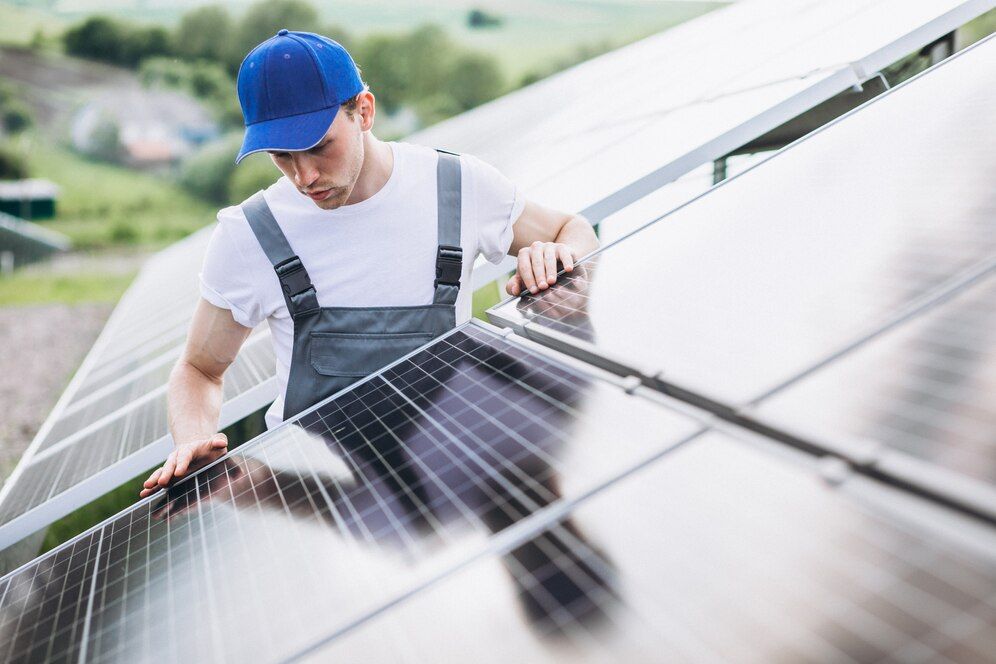
Steps to Install Maximum Solar Panels
Assessing Your Home’s Solar Potential
Before installing solar panels, assess your home’s solar potential. This involves evaluating the amount of sunlight your roof receives and any potential obstructions. Look for areas on your roof that get the most sun throughout the day, ideally south-facing sections. Consider any trees, chimneys, or other structures that might cast shadows and reduce efficiency. Using tools like solar calculators or consulting with a professional can give you a precise estimate of your home’s solar capacity.
Choosing the Right Solar Panel System
Selecting the right system is crucial. Consider factors like panel efficiency, warranty, and the reputation of the manufacturer to ensure you get the best value for your investment. Higher efficiency panels may cost more upfront but can produce more electricity in the same amount of space. Check the warranty terms—most reputable manufacturers offer 25-year warranties, ensuring long-term reliability. Also, read reviews and research the manufacturer’s reputation to avoid potential issues down the line.
Installation Process
The installation process typically involves a site assessment, obtaining permits, installation, and connecting your system to the grid.
- Site Assessment: A professional will evaluate your roof’s condition and suitability for solar panels.
- Obtaining Permits: Necessary permits from local authorities must be acquired, which can vary depending on your location.
- Installation: Technicians will install the panels, mount them securely, and wire them to the inverter.
- Connecting to the Grid: Finally, your system will be connected to the electrical grid, and an inspection will ensure everything is up to code.
Working with a reputable installer can streamline this process and ensure quality workmanship, minimizing delays and potential issues.
Choosing the Right Solar Company
What to Look for in a Solar Installer
When choosing a solar installer, look for certifications, experience, and customer reviews. Certified installers have proven their knowledge and skills, ensuring they can handle your installation efficiently and safely. Experience in the field often correlates with better service and fewer installation errors.
Customer reviews can provide insights into the installer’s reliability, customer service, and overall satisfaction. A good installer will offer comprehensive service, from initial assessment to post-installation support, ensuring a smooth transition to solar energy.
Questions to Ask Potential Installers
Ask potential installers about their experience, the types of panels they use, the warranties they offer, and any financing options available. Inquire about their experience with similar projects and their success rate. Find out which brands of panels they recommend and why, focusing on efficiency and durability.
Clarify the details of warranties, including what is covered and the duration. Lastly, explore financing options they offer or recommend, such as leases, loans, or power purchase agreements, to make the investment more manageable.
Conclusion
Install Maximum Solar Panels for My Home is a smart investment that pays off in multiple ways. From financial savings and energy independence to environmental benefits and increased property value, the advantages are clear. As solar technology continues to advance, now is the perfect time to harness the power of the sun and future-proof your home’s energy needs.
FAQs
How long do solar panels last?
Solar panels typically last 25 to 30 years, but many continue to produce electricity at reduced efficiency beyond this period.
Can I install solar panels myself?
While some DIY kits are available, it’s recommended to have a professional installer handle the installation to ensure safety and compliance with local regulations.
What happens during cloudy days?
Solar panels can still generate electricity on cloudy days, although their efficiency may be reduced. Modern panels are designed to capture diffuse sunlight, ensuring consistent energy production.
